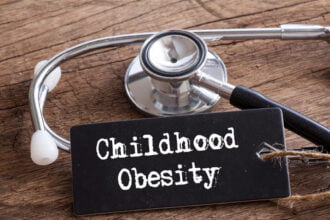Our bodies need to move in order to be healthy. If we’re not getting our blood flowing and our muscles flexing, then we’re slowly allowing our bodies and the vital systems within them grow weaker. Experts recommend that we get at least a half-hour of exercise per day, five days a week (that?s 150 minutes per week). Of course, that’s the minimum amount, and many of us want more than to just not be unhealthy. We want to make ourselves actively healthier. We want to run, lift weights, or enjoy active hobbies that will whip us into (and keep us in) shape. But getting into shape isn’t just about what you burn off. It’s also about what you put into your body. Eat too much, and no amount of exercise can overcome your diet; eat too little of the right stuff, and you won’t have the energy that it takes to exercise. This is tricky, so make sure you understand how to fuel your own exercise goals:
Macronutrients and calories
You are what you eat; but what are you eating? Nutrition science involves all kinds of vitamins, minerals, and other nutrients. There?re so many that it’s virtually impossible to keep track of them all. Plus, scientists still aren?t exactly sure how some of them work or even what some of them do. That?s where simplification comes in. As you diet and exercise, you should be focused on three major types of nutrients. These “macronutrients,” are proteins, carbohydrates, and fats. Experts recommend you eat them in a certain proportion depending on your goals. You should do your research to find your balance. For instance, if you’re lifting a lot of weights you’ll want to go heavier on protein. Calories, by the way, are not a macronutrient. They are important, however, so pay attention to them as well. While weight loss and weight gain are not so simple as ?calories in, calories out,? there?s a reason that so many diets focus on that number. If you eat a lot of “empty calories,” (foods with calories but without much in the way of healthy nutrients) you?ll gain weight. It?s that simple.
A balanced diet
We’ve talked about nutrients, but we haven’t really connected them to any foods. Which foods should you eat to get more protein? Which foods should you eat to get more carbs? Let’s back up for a second before answering. If you want to eat healthy without keeping track of all of the micronutrients (really having to consider the macronutrients much at all, for that matter), here’s you prescription: Eat whole foods like vegetables and avoid processed ones. Eating naturally or organically will mean that you get pretty much everything that you could ever need without having to think as much about it. When you do eat processed foods, check out those nutrition labels and use your best judgment. Don’t overload on empty calories or throw your fats out of balance with the other macronutrients.
Shakes and supplements
Aren’t we living in 2019? Can’t you just drink some super milkshake or something instead of eating your vegetables? Sort of. You can and should check out protein shakes and meal replacement shakes as you diet and exercise. Modern supplements can help you fuel your workout and recover faster. A pre-workout drink can help you avoid cramps and work out more safely while shakes that are heavy on protein also fill you up (which is good news if you’re having trouble fighting cravings for snacks). The best meal replacement shakes focus on macronutrients and will help keep your diet healthy. These things should be combined with a healthy diet, of course ? they’re not supposed to replace them entirely. They?re great, though, and should absolutely be things that you consider as you look for the best ways to fuel your body.
What makes a diet stick?
Now that you know how to fuel your body, there’s one last thing to consider: How can you stick to your plan? After all, most diets fail. The best way to commit to a long-term healthy diet is to do just that: Make a plan for the long term. Don’t cut calories aggressively or try to change all at once. Introduce more and more healthy foods into your diet and fill up on vegetables (and protein shakes) while you attempt to eat fewer Doritos. It will take time. Keep your goals realistic, though, and keep moving forward toward a healthier life!







